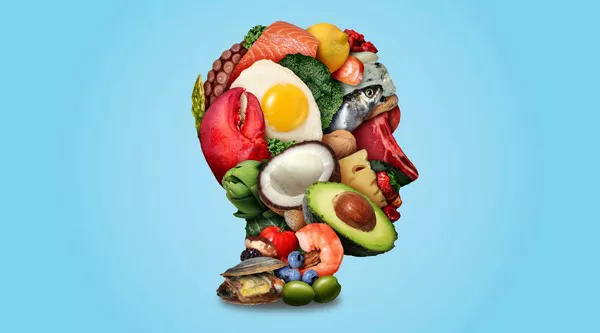Vitamins are essential nutrients that our bodies need to function properly. They play a vital role in maintaining good health and preventing disease. There are two main types of vitamins: water soluble and fat soluble. In this article, we’ll explore which vitamins are soluble in fat, and why it’s important to get enough of these essential nutrients.
1. What are Fat Soluble Vitamins?
Fat soluble vitamins are vitamins that dissolve in fat and are stored in the body’s fatty tissues. This means that they can accumulate in the body over time, and it’s possible to get too much of them. The fat soluble vitamins include:
Vitamin A: This vitamin is important for vision, immune function, and skin health. Good sources of vitamin A include liver, fish, dairy products, and orange and yellow fruits and vegetables.
Vitamin D: This vitamin is important for bone health, immune function, and calcium absorption. Good sources of vitamin D include sunlight, fatty fish, and fortified dairy products.
Vitamin E: This vitamin is important for antioxidant function and skin health. Good sources of vitamin E include nuts, seeds, and vegetable oils.
Vitamin K: This vitamin is important for blood clotting and bone health. Good sources of vitamin K include leafy green vegetables, liver, and dairy products.
Because fat soluble vitamins are stored in the body, it’s important to be careful not to consume too much of them. Excessive intake of fat soluble vitamins can lead to toxicity and can cause serious health problems.
2. Why are Fat Soluble Vitamins Important?
Fat soluble vitamins are important for maintaining good health. Vitamin A, for example, is important for vision, immune function, and skin health. Vitamin D is important for bone health, immune function, and calcium absorption. Vitamin E is important for antioxidant function and skin health. Vitamin K is important for blood clotting and bone health.
Because fat soluble vitamins are stored in the body, it’s important to be careful not to consume too much of them. Excessive intake of fat soluble vitamins can lead to toxicity and can cause serious health problems.
3. How to Get Enough Fat Soluble Vitamins
Getting enough fat soluble vitamins is important for maintaining good health. While fat soluble vitamins are found in a variety of foods, it can be difficult to obtain enough of them through diet alone. The best way to get fat soluble vitamins is through a balanced diet that includes a variety of foods, including:
Vitamin A: Liver, fish, dairy products, and orange and yellow fruits and vegetables.
Vitamin D: Sunlight, fatty fish, and fortified dairy products.
Vitamin E: Nuts, seeds, and vegetable oils.
Vitamin K: Leafy green vegetables, liver, and dairy products.
Supplements can also be a good option for getting enough fat soluble vitamins. However, it’s important to talk to your healthcare provider before starting any new supplements, as some supplements can interact with medications or have other adverse effects.
4. Vitamin A
Vitamin A is a fat soluble vitamin that is important for vision, immune function, and skin health. It is found in a variety of animal-based foods, including liver, fish, and dairy products. Vitamin A is also found in plant-based foods in the form of beta-carotene, which the body can convert into vitamin A.
While vitamin A is important for good health, it’s also possible to consume too much of it. Excessive intake of vitamin A can lead to toxicity and can cause serious health problems, including liver damage and birth defects. For this reason, it’s important to be careful not to consume too much vitamin A.
5. Vitamin D
Vitamin D is a fat soluble vitamin that is important for bone health, immune function, and calcium absorption. Our bodies can produce vitamin D when our skin is exposed to sunlight, but it can also be obtained through diet and supplements.
Good food sources of vitamin D include fatty fish, such as salmon and tuna, and fortified dairy products. However, it can be difficult to obtain enough vitamin D through diet alone, especially for people who live in areas with limited sunlight or who have limited sun exposure.
Supplements can be a good option for getting enough vitamin D. The recommended daily intake of vitamin D for adults is 600-800 IU per day.
6. Vitamin E
Vitamin E is a fat soluble vitamin that is important for antioxidant function and skin health. It is found in a variety of foods, including nuts, seeds, and vegetable oils.
While vitamin E is important for good health, it’s also possible to consume too much of it. Excessive intake of vitamin E can lead to toxicity and can cause serious health problems, including bleeding and bruising. For this reason, it’s important to be careful not to consume too much vitamin E.
7. Vitamin K
Vitamin K is a fat soluble vitamin that is important for blood clotting and bone health. It is found in a variety of foods, including leafy green vegetables, liver, and dairy products.
While vitamin K is important for good health, it’s also possible to consume too much of it. Excessive intake of vitamin K can interfere with blood thinning medications and can cause serious health problems, including liver damage. For this reason, it’s important to be careful not to consume too much vitamin K.
8. Conclusion
In conclusion, fat soluble vitamins are important for maintaining good health. Vitamin A, vitamin D, vitamin E, and vitamin K are all essential nutrients that play a vital role in various bodily functions. While fat soluble vitamins are found in a variety of foods, it can be difficult to obtain enough of them through diet alone.
The best way to get fat soluble vitamins is through a balanced diet that includes a variety of foods, including liver, fish, dairy products, orange and yellow fruits and vegetables, sunlight, fatty fish, nuts, seeds, vegetable oils, leafy green vegetables, and liver. Supplements can also be a good option for getting enough fat soluble vitamins, but it’s important to talk to your healthcare provider before starting any new supplements. With proper planning and attention to nutrient intake, fat soluble vitamins can be obtained in adequate amounts to maintain good health.
[inline_related_posts title=”You Might Be Interested In” title_align=”left” style=”list” number=”6″ align=”none” ids=”4134,4130,4025″ by=”categories” orderby=”rand” order=”DESC” hide_thumb=”no” thumb_right=”no” views=”no” date=”yes” grid_columns=”2″ post_type=”” tax=””]
































